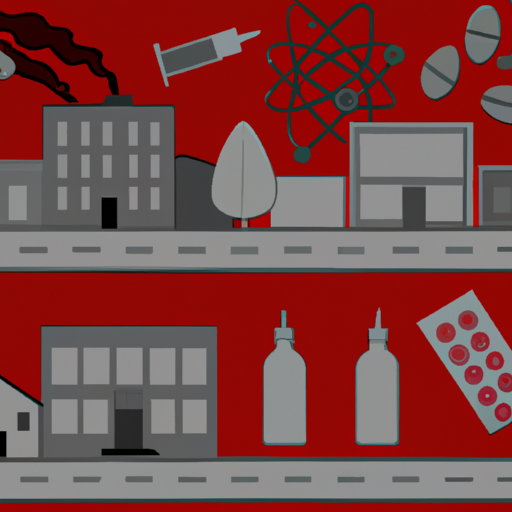The Devastating Effects of the Opioid Crisis in Canada
Hello readers, in keeping up with the unfolding opioid crisis in Canada, today we’ll look at a new development from the Office of the Attorney General of British Columbia. According to a recent news release, British Columbia has become the first province in Canada to announce that they will be filing a class action lawsuit in relation to the opioid crisis. Let’s delve into this deeper.
The Crisis at Hand
The opioid crisis has imposed a severe burden on Canadian society, with British Columbia being one its most affected provinces. Each year, there are thousands of preventable deaths as a result of opioid overdose. This is coupled with other devastating consequences, most notably homelessness and a surge in crime.
The Class Action Against Opioid Companies
In response to the crisis, the Attorney General David Eby announced that British Columbia would be suing over 40 opioid manufacturers, wholesalers, and distributors. The lawsuit aims to recover costs that the province has incurred as a result of the opioid crisis. These costs are not just financial; they are a matter of human lives and societal stability.
How does the Opioid Crisis affect Society?
A bullet point summary of the harms that the opioid crisis has caused might help us understand the full scale of the problem:
- Healthcare system strain: The opioid crisis has put severe pressure on the healthcare system due to increasing hospitalization rates and the need for emergency services to attend overdoses.
- Increased crime rate: As addiction rates spiralled, indirectly, communities have seen a rise in crime rates attributed to substance dependence.
- Rise in homelessness: Many addicted to opioids often end up losing their homes, contributing to a surge in the already alarming homelessness statistics.
The Opioid Class Action Details
The province’s opioid class action lawsuit is rooted in claims that companies violated laws by marketing these highly addictive prescription drugs as less addictive than they actually are. Additionally, these healthcare companies allegedly failed adequately to control the distribution of these drugs, leading to their misuse and abuse.
The Power of Naloxone
While legal procedures are underway, efforts on the frontlines continue. Naloxone kits have become a powerful weapon to counter opioid overdoses. Naloxone can reverse the precarious symptoms of an overdose for a short time, enough to get emergency medical help. The provincial government has taken steps to offer free naloxone kits, and many organizations are prioritizing to educate the public on its use.
Summary: A Call to Action
In conclusion, the opioid crisis is a public health emergency. British Columbia’s opioid class action lawsuit is a significant step – a stern warning to pharmaceutical companies and distributors that they must bear responsibility for their actions. However, dealing with the opioid crisis calls for a multi-faceted, compassionate, and sustained approach.
The society as a whole, including healthcare professionals, policymakers, law enforcement agencies, and community organizations, must all come together to address this issue. British Columbia is paving the way by legally addressing this crisis obtaining some justice for the victims. However, it reminds us that heavy emphasis also needs to be placed on prevention, treatment, and education to truly mitigate damage and save lives. Stay informed, stay safe.


